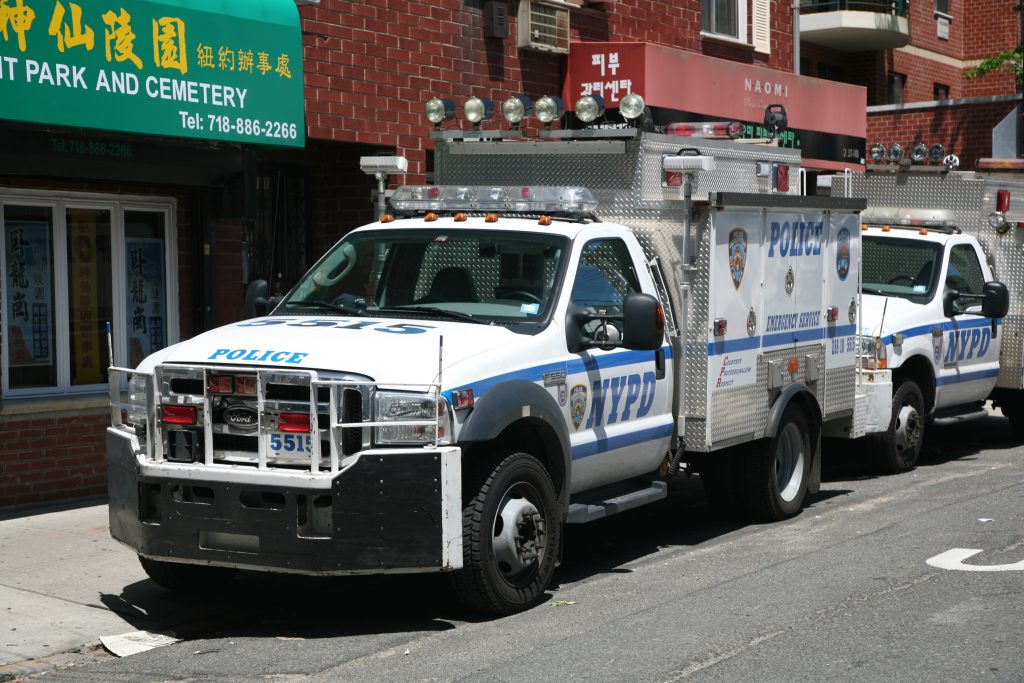
Image Credit: Daniel Schwen, CC BY-SA 4.0, via Wikimedia Commons.
By Saul Roth
A position that accumulates large amounts of acute stress will often produce dangerous chronic stress over an extended period of time. Anshel et al. (1997) explained that officers suffer acute stress over many different situations. On patrol, there are unpredictable incidents, domestic disputes, police injuries, and weapon calls. Anshel et al. (1997) should have included the immediate administrative decisions that cause acute stress at that moment, such as being assigned to a call at the end of the shift when the officer has family responsibilities, sudden transfers, and immediate discipline. Acute stress can be reduced by more support from supervision, which is usually lacking in most police departments.
During my career, I have seen many dead bodies. Every person has their own way of coping with such circumstances; mine was to look at most as if they were not real. Karlsson and Christianson (2003) discussed how police officers are particularly adversely affected by observing dead bodies of children. Particularly, cases of child abuse and child murder can cause much stress for police officers. I certainly was not able to use the same coping skills for children as I did for adults.
As Lennings (1997) discussed, the most common and dangerous calls for police are domestic incidents. One fifth of officers’ injuries occur during these assignments. Many times officers have to use physical force at these calls. Their image, however, keeps them from discussing these calls with others, as many times – due to the politics in and outside of the department – the officer will be second-guessed. Moreover, supervisors will at times not back the officer. Additionally, the officer may have the stress of the arrest to contend with, including the arrest processing itself, dealing with the district attorney’s office, and facing the defendant. As a desk officer, I reviewed many domestic cases and spent a good portion of my tour reviewing forms for the New York State Department of Criminal Justice Domestic. As a juvenile aid bureau detective, I responded to many homes in which domestic violence occurred in the presence of children. These incidents are large producers of acute stress and when officers frequently respond to these calls, they become a source of chronic stress.
PTSD
Liberman et al. (2002) discussed horrible events that police officers witness that often lead to PTSD. I find that the incidents he relates plausible, though the statements regarding the average officer being shot at least once in his career seems unrealistic. In my 30 years in civilian policing and my service as military law enforcement official, I have never been involved in a shooting. Moreover, I do not know of many police officers that have been involved in a shooting. Though the stress of possibly of being shot is a daily stress, actually being shot at is not an everyday occurrence.
PTSD is a diagnosis that gained notoriety in the Vietnam War. PTSD is an anxiety disorder. Stein et al. (2007) documented areas in which World War II veteran’s exceled over non-veterans. I believe that most able-bodied men either enlisted or fought in World War II and thus, to compare veterans to non-veterans is comparing those that were able to those that might have already had medical and psychological conditions to those who did not. By contrast, the Vietnam War brought upon domestic conflict and many opposed the draft. Like police, the general public did not commend Vietnam veterans for their service. Whatever names you give to a diagnosis of depression, anxiety, nightmares, and reliving incidents, a condition exists for police officers.

Recent Comments